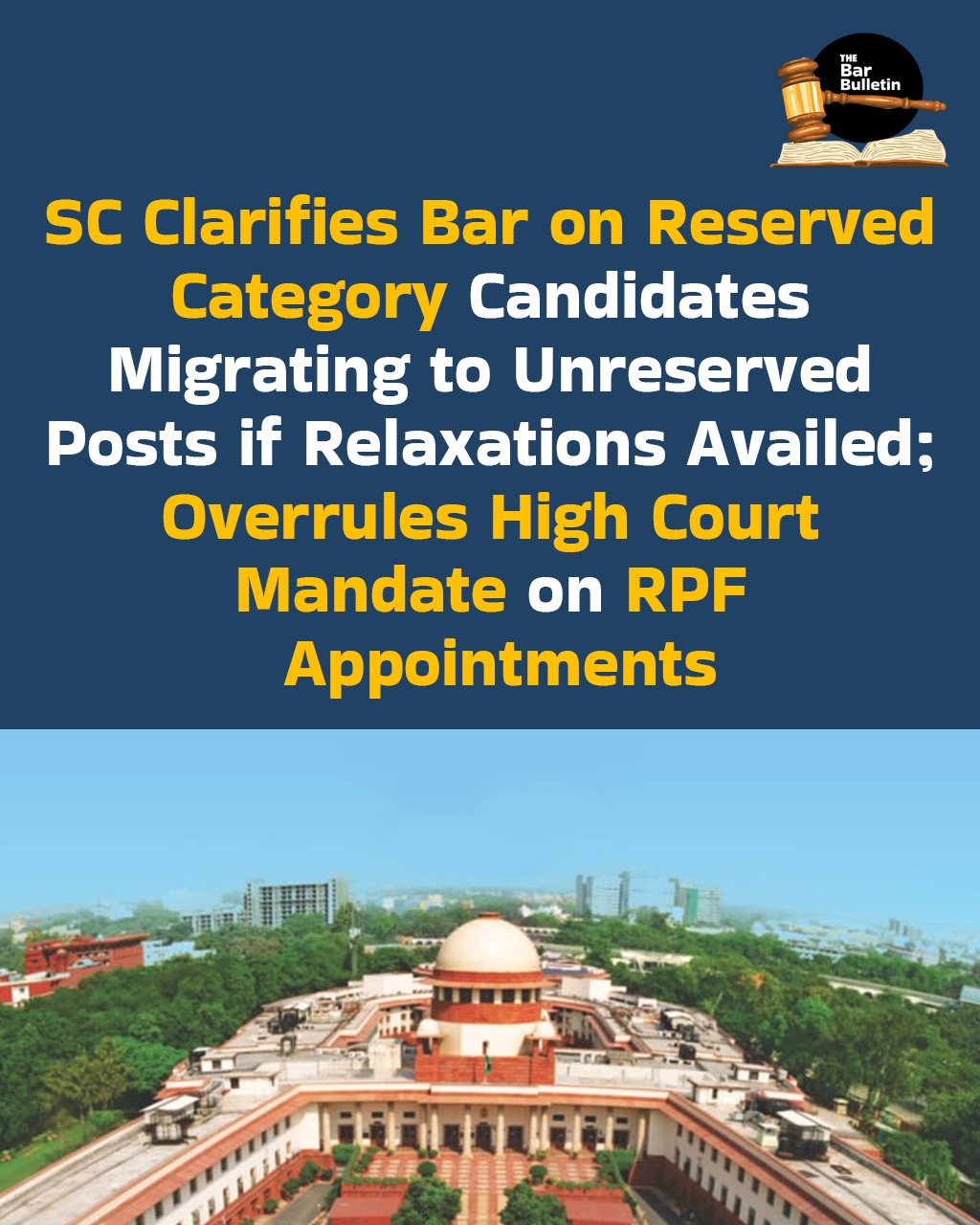The Supreme Court allowed the appeal, setting aside the Guwahati High Court judgment that had directed reserved category candidates who availed age or physical relaxations, to be appointed in unreserved (UR) posts if they scored above general category cut-off marks.
Employment Notice No. 1/2013 invited applications for ancillary constable posts, where SC/ST and OBC candidates were granted age and physical relaxations. Subsequent vacancies were filled, but petitioners, who were reserved category candidates and scored above the UR cut-off, but had availed such relaxations, were not selected as general candidates. The High Court interpreted earlier standing orders and allowed their claim on the ground that higher-scoring reserved candidates should be considered for UR seats, regardless of relaxations availed.
The Railway Protection Force and its authorities challenged the High Court’s order requiring them to appoint SC/ST/OBC candidates (who had benefited from age or physical measurement relaxations) to UR category posts, if their scores exceeded the general cut-off.
The appellants argued that Standing Order No. 85 and the Revised Directive No. 29 governed the recruitment and imposed a specific bar: only reserved category candidates who had not availed any relaxation could be treated as general merit for UR posts. The respondents relied on an earlier standing order and High Court’s interpretation, favouring the migration of higher-scoring reserved candidates to general category seats.
The Supreme Court Bench comprising Justice Surya Kant and Justice Joymalya Bagchi noted a conflict between Standing Order No. 78 (permitting migration) and No. 85 (barring it if relaxations availed). The Court held that the later order (No. 85), as partially modifying No. 78 via the Revised Directive, must prevail. Previous precedent, Union of India v. Sajib Roy[1], was reaffirmed to hold that where recruitment rules bar such migration, candidates who avail relaxations cannot be appointed against UR posts, even if they outscore the UR cut-off.
In related connected appeals, the Court further clarified that office memoranda barring migration relate to relaxations in merit standards (age, marks) but not necessarily physical standards, unless expressly stated.
In result, the High Court order was set aside. The Supreme Court directed that reserved category candidates who availed age or physical relaxations are not entitled to appointment to unreserved posts, even if their scores exceed the UR threshold, where recruitment rules or directives create an explicit bar.
Cases relied on:
1. Jitendra Kumar Singh vs. State of UP & Ors. (2010) 3 SCC 119
2. Union of India & Ors. vs. Sajib Roy SLP (C) No. 21392-93 of 2019
3. Deepa E.V. v. Union of India & Ors. (2017) 12 SCC 680
4. Niravkumar Dilipbhai Makwana v. Gujarat Public Service Commission & Ors. (2019) 7 SCC 383
5. Government (NCT of Delhi) & Ors. v. Pradeep Kumar & Ors. (2019) 10 SCC 120
[1] SLP (C) No. 21392-93 of 2019



